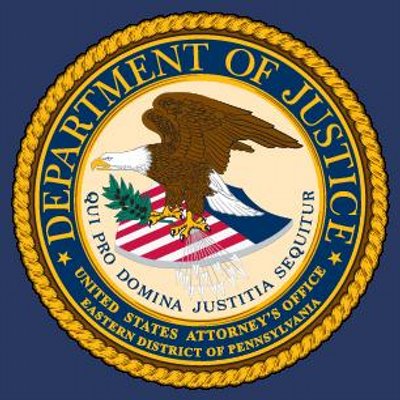U.S. Taxpayers Will Benefit from Clinical Director’s Report of Wrongdoing at SouthernCare, Which Was Under Federal Oversight at the Time
———-
WASHINGTON, D.C. (December 13, 2018) — Acting on information from a whistleblower represented by The Employment Law Group® law firm, the U.S. government agreed to accept almost $6 million from SouthernCare, Inc. (SCI), a hospice operator with locations across nine states, to settle charges that SCI defrauded taxpayers by admitting Medicare patients in Pennsylvania who weren’t properly certified for end-of-life care.
The settlement, announced today by the U.S. Department of Justice, includes a reward for whistleblower Dawn Hamrock, who resigned in 2012 as clinical director of a SouthernCare facility in New Castle, Pa., after questioning SCI’s practices.
 The case was pursued by the U.S. Attorney’s office for the Eastern District of PennsylvaniaAt the time of the alleged fraud, SCI was operating under a five-year Corporate Integrity Agreement (CIA) required by the settlement of a previous whistleblower case in 2009, which had claimed similar fraud. In a later presentation on How to Thrive Under a CIA, SCI’s top compliance officer argued that integrity agreements can limit government oversight and dissuade prosecutors from supporting other whistleblower cases — which he touted as positive outcomes.
The case was pursued by the U.S. Attorney’s office for the Eastern District of PennsylvaniaAt the time of the alleged fraud, SCI was operating under a five-year Corporate Integrity Agreement (CIA) required by the settlement of a previous whistleblower case in 2009, which had claimed similar fraud. In a later presentation on How to Thrive Under a CIA, SCI’s top compliance officer argued that integrity agreements can limit government oversight and dissuade prosecutors from supporting other whistleblower cases — which he touted as positive outcomes.
Ms. Hamrock filed her complaint against SCI in 2013 under the federal False Claims Act. That statute, originally signed into law by President Abraham Lincoln in 1863, makes it illegal to deceive the federal government for financial gain. The law includes a “qui tam” provision that allows whistleblowers to file a legal complaint on behalf of the government and — if they prevail — to receive a share of the proceeds.
Ms. Hamrock’s lawsuit focused on the hospice benefit provided by Medicare, the taxpayer-funded health insurance program. In order to be eligible for end-of-life treatment, Medicare requires that patients be diagnosed with a medical condition that, under normal circumstances, results in a life expectancy of six months or less. SCI knowingly admitted patients who didn’t meet this standard and fudged the paperwork to get paid anyway, according to Ms. Hamrock’s complaint. In some cases, these ineligible patients remained in government-reimbursed care for four years or more, the complaint said.
In exercising its power to settle the case, the Justice Department agreed to dismiss the case without a determination of liability in exchange for SCI’s payment. The settlement also covered claims by a second whistleblower, Patricia Beegle, who filed a later lawsuit based on her experience working for SCI in Altoona, Pa. Ms. Hamrock, a registered nurse who was designated as the primary whistleblower, will share the reward with Ms. Beegle according to a private agreement between them. SCI will pay both women’s legal costs.
“Dawn showed tremendous integrity in this case,” said R. Scott Oswald, managing principal of The Employment Law Group. “She acted as an advocate not just for the patients in her charge — who in some cases were ill-served by a switch to hospice care — but also for her fellow taxpayers. When her internal complaints weren’t enough, she resigned and used stronger medicine to hold SCI to account.”
The Employment Law Group worked on the case with local counsel M. Tavy Deming and Emily C. Lambert of Kenney & McCafferty, P.C.; and with Assistant U.S. Attorneys Michael S. Macko and Anthony Scicchitano, both of the Eastern District of Pennsylvania.
“This case shows the importance of watching out for the recurrence of Medicare fraud, which can become a habit for certain corporations,” said Mr. Oswald, who represented Ms. Hamrock along with Janel Quinn, the law firm’s qui tam associate. “Sometimes a settlement isn’t enough to settle the matter. Sometimes a Corporate Integrity Agreement won’t guarantee corporate integrity. And certainly a compliance program doesn’t always mean compliance — we see that all the time. Taxpayers should give thanks for whistleblowers like Dawn, honest employees who are willing to act as a conscience for Medicare providers.”
—————–
About The Employment Law Group
The Employment Law Group® law firm represents whistleblowers and other employees who stand up to wrongdoing in the workplace. Based in Washington, D.C., the firm takes cases nationwide.

